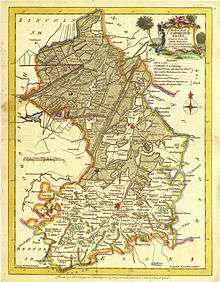Grunty Fen
Coordinates: 52°22′0″N 00°12′0″E / 52.36667°N 0.20000°E


Grunty Fen was a former parish in Cambridgeshire, England, four miles south west of Ely. It was amalgamated with Wilburton parish in 1933.
History

Grunty Fen consists of the low-lying land at the centre of the Isle of Ely that separates the villages of Wilburton and Stretham from Witchford and Wentworth; the area lies at under 5 metres above sea-level. Despite the importance of nearby Ely, the land around Grunty Fen was uninhabitable even following the draining of The Fens in the seventeenth century, and was still only used for sheep grazing and turf cutting through the eighteenth century. One of the last parts of The Fens to be drained, a catchwater was dug in 1838, though it took another couple of decades for the land to become completely dry. Following enclosure the land was farmed, but the thin peaty soil soon eroded and by the Second World War the area was largely uncultivated once more. There are now several working farms covering the fen.[1]
The parish of Grunty Fen was situated in the hundred of South Witchford and covered an area of 1793 acres. At one stage the parish was considered extra-parochial, with the area divided between the parishes of Ely, Witchford, Wentworth, Haddenham, Wilburton, Stretham, and Little Thetford. In 1921 its population was only 97, and in 1933 the parish was merged with that of neighbouring Wilburton.[2]
The Ely and St Ives Railway crossed the area and was jokingly called the "Grunty Fen Express". The former railway stations of Wilburton and Stretham that opened in 1866 both fell within the parish, closing to passenger traffic in 1931 and closing completely in July 1964.[1][2]
The area made national headlines when Isle of Ely MP Clement Freud asked the Prime Minister Margaret Thatcher whether she had plans to visit Grunty Fen where residents were concerned about the level of wage settlements. Thatcher replied that the 97 residents were a happy, agricultural community with a low rate of unemployment.[1][3] Clement Freud used to race a horse called Grunty Fen.
Popular culture
From the late 1980s BBC Radio Cambridgeshire broadcast a weekly slot featuring Dennis of Grunty Fen, "Britain's favourite vocal yokel", a fictional character who lives in a converted railway carriage with his 92-year-old grandmother. Despite the death of the creator, Pete Sayers, in 2005, the character's popularity continues.[4][5]
An annual race known as the Grunty Fen Half Marathon has been run annually since 1991. The race starts and ends at Witchford Village College.[6]
The Grunty Fen Rhubarb Festival is held annually at Burwell Museum.[7]
References
- 1 2 3 Mike Petty (March 19, 2012). "Memories". Cambridge News.
- 1 2 Kelly's Directory of Cambridgeshire, 1929
- ↑ Margaret Thatcher, Prime Minister (10 June 1980). "Grunty Fen". Parliamentary Debates (Hansard). House of Commons. col. 296–297.
- ↑ "Dennis of Grunty Fen". ely.org.uk.
- ↑ "Deep down your way". The Independent. June 29, 1997.
- ↑ "Grunty Fen Half Marathon".
- ↑ "Grunty Fen Rhubarb Festival". BBC.
